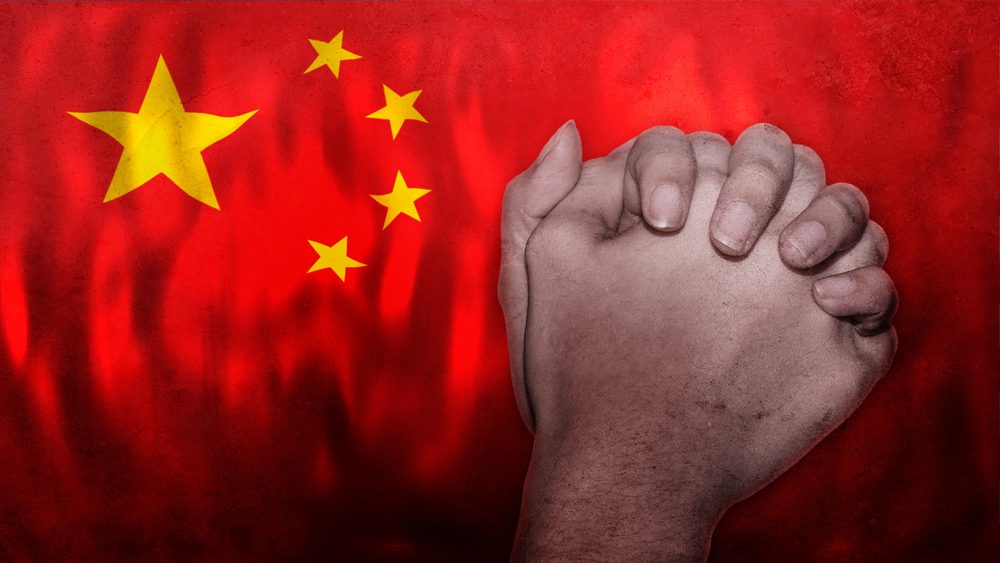
Chinese authorities have violated the provisional agreement on the appointment of bishops, the Vatican says. In a statement released on November 26th, the Holy See “noted with surprise and regret” that bishop John Peng Weizhao had been installed by the Chinese government as an “auxiliary bishop of Jiangxi,” a diocese it does not recognize.
With the move, China has unilaterally incorporated into a single diocese all five bishoprics traditionally linked to the Metropolitan See of Nanchang, the capital of Jiangxi province.
The Vatican statement went on to note that Peng’s installation ceremony in Nanchang “did not occur in accordance with the spirit of dialogue … and what was stipulated in the Provisional Agreement on the Appointment of Bishops, on September 22, 2018.”
It also expressed concern over reports that “prolonged and heavy pressure from local authorities” preceded the installation. Hoping that “similar episodes will not be repeated,” the Holy See awaited “appropriate communications on the matter,” as it reaffirmed its “full readiness to continue the respectful dialogue concerning all matters of common interest.”
The Chinese foreign ministry has not yet issued a response.
In theory, the deal allows Rome to pick its own bishops within China, which it has since managed to do on six occasions only. Ever since it was established, some Catholics have been vocal in their denouncement of it—reactions vary from labelling the deal as ineffectual at best, while at worst, outright capitulation.
This latest incident confirms such suspicions. Concerning non-statist ideology on its turf, the Chinese Communist Party prefers to maintain a vice-like grip.
In China, practising ‘Catholicism’ is a bifurcated proposition; on the one hand, there is an underground Church faithful to Rome, while on the other, a state-sanctioned Church, under the tight control of the Chinese Communist Party.
As The European Conservative warned earlier in July, Rome has proven to be too trusting that Beijing would hold up its end of the (watered-down) bargain.
Peng had been Pope Francis’ appointee, and had been secretly ordained as an underground bishop of Yujiang in 2014. For this infraction, Chinese authorities arrested Peng and held him in custody for six months.
As AsiaNews reported two years ago, after the 2018 Agreement, the underground Church in Yujiang came under intense pressure to join the official Church. It would appear that Peng has now finally caved.
According to the Chinese Catholic Patriotic Association, which is controlled by the Communist Party, the auxiliary bishop swore to
faithfully preach the gospel, lead the priests and Catholics of
the Diocese of Jiangxi, abide by the national constitution, safeguard the unity of the motherland and social harmony, love the country and religion, adhere to the principle of independence and self-management of the Church, adhere to the direction of Sinicization of Catholicism in our country, actively guide Catholicism to adapt to socialist society, and contribute to the realisation of the Chinese dream of the great rejuvenation of the Chinese nation.
The press release further notes that Peng’s superior, bishop John Baptist Shuguang Li of Nanchang presided over the installation ceremony with about 200 people in attendance. Li also serves as the vice president of the Chinese bishops’ conference, a group that has not received recognition from the Holy See.
The day following Peng’s installation, former archbishop of Hong Kong, Cardinal Joseph Zen, a stalwart critic of the agreement, was convicted by a Hong Kong court. For having failed to register a fund for pro-democracy protesters, he has to pay a HK $4,000 (€491) fine.
Bishop John Peng Weizhao’s installation ceremony took place almost exactly one month after the Vatican renewed its deal with Beijing on the appointment of Catholic bishops for an additional two years, after the last one in 2020.
The exact terms of the 2018 deal, the Provisional Agreement on the Appointment of Bishops signed by the Vatican and the CCP—and of its subsequent renewals—have never been made public.
